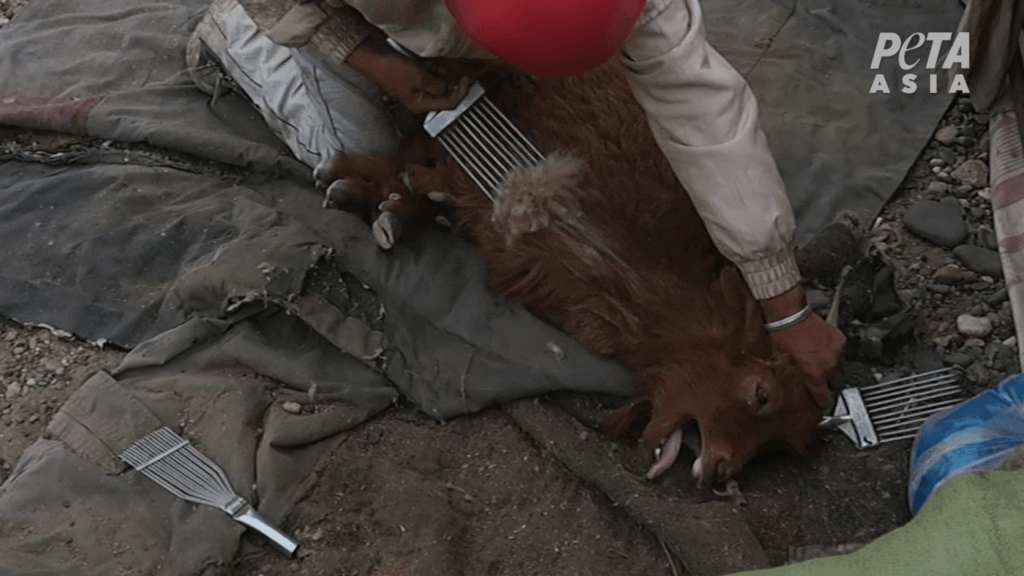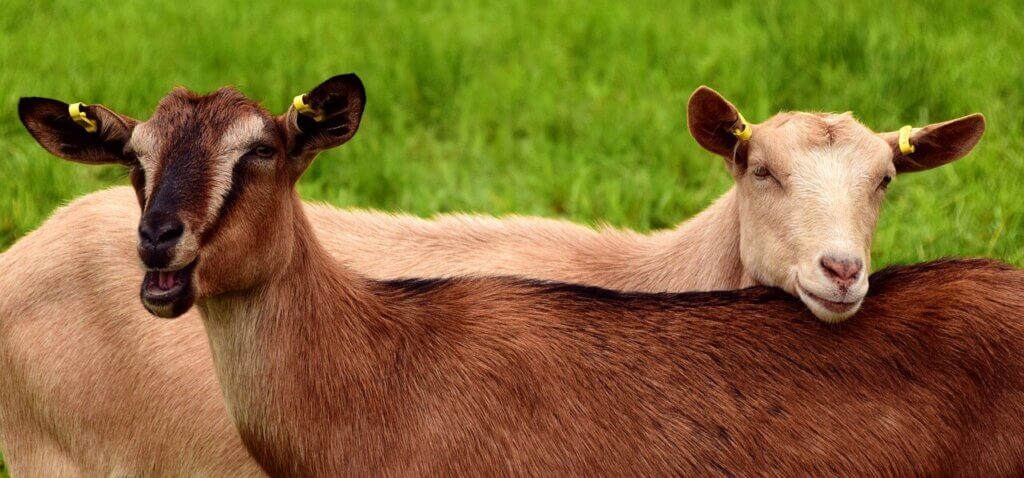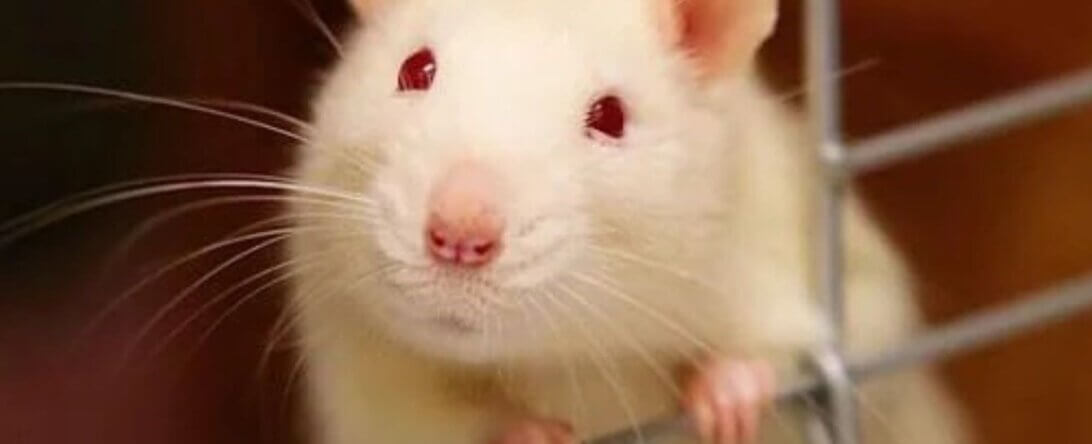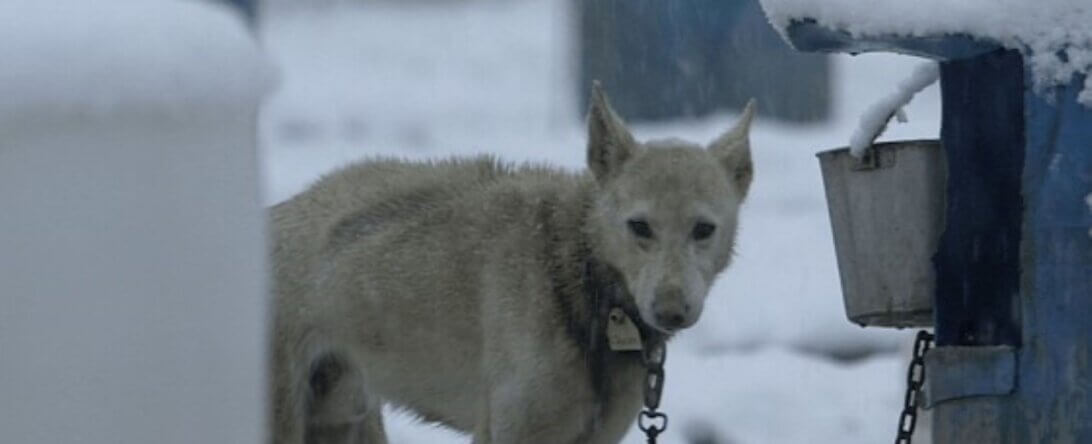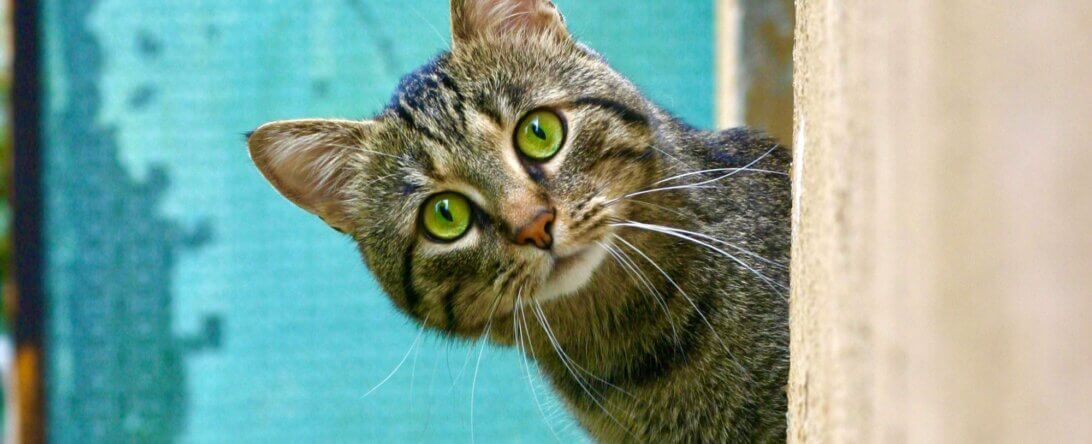The Cashmere Industry Is Cruel—It Hurts and Kills Gentle Goats
Cashmere may have sweaters and knit gloves in a chokehold, but you should avoid buying items that contain any amount of the material, because companies obtain it from suppliers that tear out cashmere goats’ hair and otherwise abuse them before violently killing them. Facts.
Goats are skinny legends, so they rely on their coat—not body fat—to keep them warm when the weather is giving tundra. By robbing them of their insulation, shearing can kill them. As for the ones who manage to survive, workers often drag them, step on them, hold them down, and bend them into unnatural positions while roughly tearing out the screaming goats’ hair with metal combs.
The majority of cashmere comes from China and Mongolia, and PETA Asia investigators went to cashmere farms in these countries and saw that goats suffered on every one they visited. Sheared goats left with bloody cuts received no pain relief or veterinary care. One worker poured rice wine into an animal’s wound. At a slaughterhouse in China, eyewitnesses saw workers hit goats in the head with a hammer to try to stun them. In Mongolia, workers were seen dragging goats by one leg onto the kill floor, where they slit their throats in full view of other goats and left them to bleed out. Some were seen still moving a full two minutes later. It’s standard in the industry for cashmere goats deemed no longer profitable to be subjected to slow, agonizing deaths—and their flesh is sold as cheap meat.
Cashmere is made from the soft undercoat of a goat, and one goat only produces about 8.5 ounces of cashmere-suitable hair a year—so it takes several goats to make just one item.
Cashmere has one of the most destructive environmental impacts of any animal-derived material. Cashmere goats must consume feed equal to 10% of their bodyweight every day, and they eat the roots of grass, which prevents it from growing back. A whopping 65% of Mongolia’s grasslands are degraded, and 90% of the country is in danger of desertification—resulting in some of the world’s worst dust storms on record. The air pollution is dense enough to reach North America.
Goats used for their hair are deprived of everything they care about. When we leave them to it, goats lead rich emotional lives and form strong social connections. They can feel pain, fear, and love. They enjoy a bowl of pasta as much as the next guy and are known to gaze into humans’ eyes and form emotional bonds with their human friends, and they can remember and repeat a skill they learned years ago.
Labels lie, so don’t trust anything that says cashmere is responsibly or humanely sourced—exploiting animals and treating them kindly are mutually exclusive.
Cotton sweaters are cottoning on, and a growing number of designers and retailers are offering super-soft, warm vegan knitwear made from a wide variety of sustainable and animal-free materials. Check the label when you’re shopping and always swerve cashmere!
Text peta2 to 30933 for ways to help animals, tips on compassionate living, and more!

Terms for automated texts/calls from peta2: http://peta.vg/txt. Text STOP to end, HELP for more info. Msg/data rates may apply. U.S. only.

